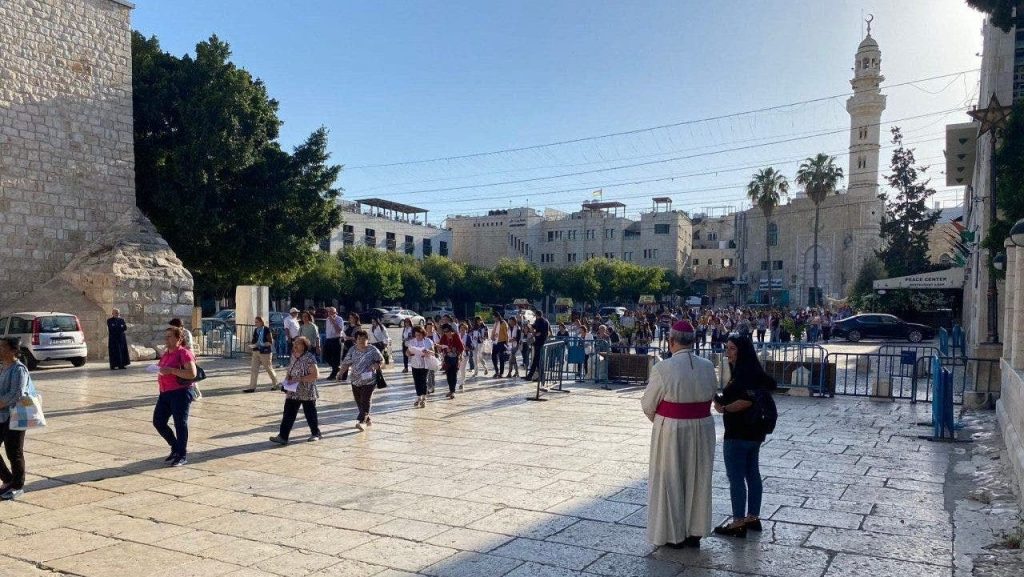The conflict between Israel and the Palestinian territories is often viewed as a tension between Judaism and Islam. However, the ongoing war poses a threat to the already dwindling Christian presence in the Holy Land. Christians in the region make up only 2% of the population and tend to belong to ancient denominations like Greek Orthodox, Coptic, and Catholic churches. While the sacred sites associated with Jesus are located in Israel and the Palestinian territories, Christians do not align exclusively with either country. The current situation is seen as unsustainable and poses a danger to Christian communities in the region.
Priests and leaders in the Catholic Church acknowledge the complexity of the conflict and its impact on their communities. The Magdala Hotel, a pilgrimage site on the banks of the Sea of Galilee, has stepped in to provide shelter for Israeli families displaced by conflict. The Irish priest, Eamon Kelly, emphasizes the need for people to uphold human dignity and avoid despair despite the challenging circumstances. He draws inspiration from Biblical narratives such as Jesus urging St. Peter to ‘go out into the deep’, calling for a deepening of faith and commitment to universal dignity.
Amid the conflict, some Christians, like Shadi Khalloul, advocate for cooperation with the Israeli government for protection and assimilation into Israeli society. Khalloul believes in spreading Western ideologies in the Islamic world to promote peace and equality. He emphasizes the need for Christians to integrate into Israeli society, including serving in the Israel Defense Forces, as a means of empowerment and protection. However, the relationship between Israel and its Christian communities remains complicated, with recent tax proceedings by Israeli municipalities raising concerns among religious leaders.
In Bethlehem, the birthplace of Jesus, the Christian population is declining rapidly due to economic instability and the ongoing conflict. The city, once a thriving pilgrimage destination, has seen a collapse in tourism since the conflict began. Christian flight from Bethlehem has accelerated, posing a threat to the community’s identity and heritage. While some Christian leaders advocate cooperation with Israeli authorities, others like Rami Asakrieh criticize Israeli policies that they believe perpetuate poverty and unrest among Palestinians. Asakrieh stresses the importance of recognizing the humanity of all people, even in the face of conflict.
The Catholic Church’s lack of political power in the region may serve as a blessing, according to Ambassador Michèle Burke Bowe. Bowe, who serves as Head of the Representative Office to the State of Palestine for the Order of Malta, highlights the Church’s focus on providing a safe place of worship and alleviating suffering. Despite its lack of political influence, the Church’s spiritual mission remains steadfast in the face of conflict. Missionaries and charity workers continue to uphold Christian values and provide humanitarian aid in the region, striving to preserve the Christian presence in the Holy Land despite overwhelming challenges.
In conclusion, the struggles of Christians in Israel and the Palestinian territories highlight the complexity of the conflict and the threats to religious diversity in the region. Efforts to promote peace, uphold human dignity, and provide economic support for Christian communities are essential to ensure their survival in the cities where Jesus once preached. As the conflict persists, there is a need for sustainable and inclusive solutions that allow for the flourishing of all religious communities in the Holy Land.


